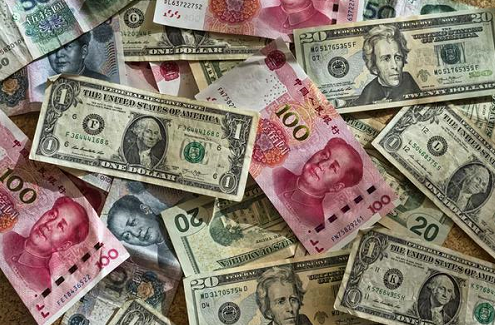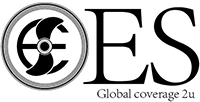“去美元化”加速!多个国家官宣人民币结算!

尼克松时代的美国财长康纳利曾这样自得地说过:“美元是我们的货币,却是你们的问题。”
去年开始,众多新兴市场国家遭遇强势美元的“洗劫”,美元已成为世界经济不稳定和不确定性的主要来源。
如今全球“去美元化”趋势正在加速,这段时间以来,有超过10个国家开始挑战美元贸易结算地位。
马来西亚
刚刚结束访华的马来西亚总理安瓦尔4月4日在该国国会表示,马来西亚没有理由继续依赖美元,马来西亚已向中国提出成立“亚洲货币基金”的构想,提议两国贸易可以用林吉特和人民币结算,而中方对该提议亦持开放态度。
巴西
当地时间3月29日,巴西外交部引述巴西贸易和投资促进局(ApexBrasil)的一份声明宣布,巴西已与中国达成协议,不再使用美元作为中间货币,而是以本币进行贸易结算。
根据该协议,巴西与中国之间的对外贸易和融资业务可以通过将雷亚尔兑换成人民币进行,反之亦然,从而避免了在交易中将雷亚尔兑换成美元的情况。
在业内人士看来,这意味着中国央行与巴西央行在2月初签订的人民币清算安排合作备忘录正式落地。巴西中央银行3月31日宣布,人民币已超过欧元,成为该国第二大国际储备货币。
多位银行人士指出,中巴两国采取跨境贸易投资本币结算的最大受益者,是两国企业。当前中巴两国的大部分贸易投资结算货币仍是美元,令双方都面临两大烦恼,一是所有美元结算都需经过CHIPS(纽约清算所银行同业支付系统),导致转账费用较高;二是两次换汇所带来的汇率风险。
伊拉克
伊拉克中央银行日前公布最新改善外汇储备措施,其中包括允许以人民币直接结算该国对华贸易。
伊拉克央行2月22日发表声明说,以人民币直接结算对华贸易将通过两种途径实现:一是通过该国银行在中国的银行开设的人民币账户增加人民币储备;二是通过伊央行在摩根大通和新加坡星展银行的账户增加该国银行美元储备,用于兑换人民币。
伊拉克政府经济顾问穆迪尔·萨利赫对媒体表示,这将是伊拉克首次允许以人民币结算来自中国的进口贸易,此前该国对华贸易一直以美元结算。而中国是伊拉克最大贸易伙伴。
沙特
中国进出口银行与沙特阿拉伯国家银行在3月成功落地首笔人民币贷款合作,贷款资金将优先满足中沙贸易项下的资金需求。本次业务是中国进出口银行与沙特金融机构间的首次合作。
这个不缺钱的“土豪国”,为何要申请人民币贷款呢?主要原因是,人民币现在相对比美元便宜,而且用人民币购买中国的商品没有汇率风险,贸易比较便利。
伊朗
2月来华访问的伊朗总统莱希,也和中国讨论了增加本币结算份额一事。据伊朗金融论坛报的最新数据,截至去年12月,伊朗外储中的人民币份额已经超过22%。伊朗经济部长汉杜齐表示,中国和伊朗的贸易中,人民币已占了相当大的比例。
俄罗斯
俄罗斯外长1月18日表示,俄罗斯与中国之间的贸易额约有一半用两国本币结算,而且这一比例还在迅速上升。而据新加坡《联合早报》网站4月4日报道,在俄罗斯被西方制裁一年后,人民币已取代美元成为俄罗斯交易量最大的外币。
莫斯科交易所每日交易报告汇编的数据显示,人民币在2月份的交易量首次超过美元,两者差额在3月份变得更为明显。报道称,在俄乌冲突前,人民币在俄罗斯市场的交易量可以忽略不计。
还有更多……
3月29日,中国首次以人民币结算跨境购买进口液化天然气(LNG)。该交易由中国海油与法国道达尔集团在上海石油天然气交易所中心达成。
这标志着我国在油气贸易领域的跨境人民币结算交易探索迈出实质性一步,也意味着人民币国际化进程明显加快。
人民币结算,起风了。
根据国际清算银行(BIS)发布的数据,美元仍是全球交易中占比最大的货币,主导地位暂未受到冲击,但人民币的交易比例近年来出现较大提升。
2022年人民币交易量占比由2019年的4%提升至7%,成为仅次于美元、欧元、日元和英镑的全球第五大交易货币。
中国人民银行已经在29个国家和地区授权了31家人民币清算行,与40个国家和地区的央行或货币当局签署了双边货币互换协议,协议总额超过4万亿元。
外贸人在接订单时,不妨问问买家,是否能够用跨境人民币支付?
